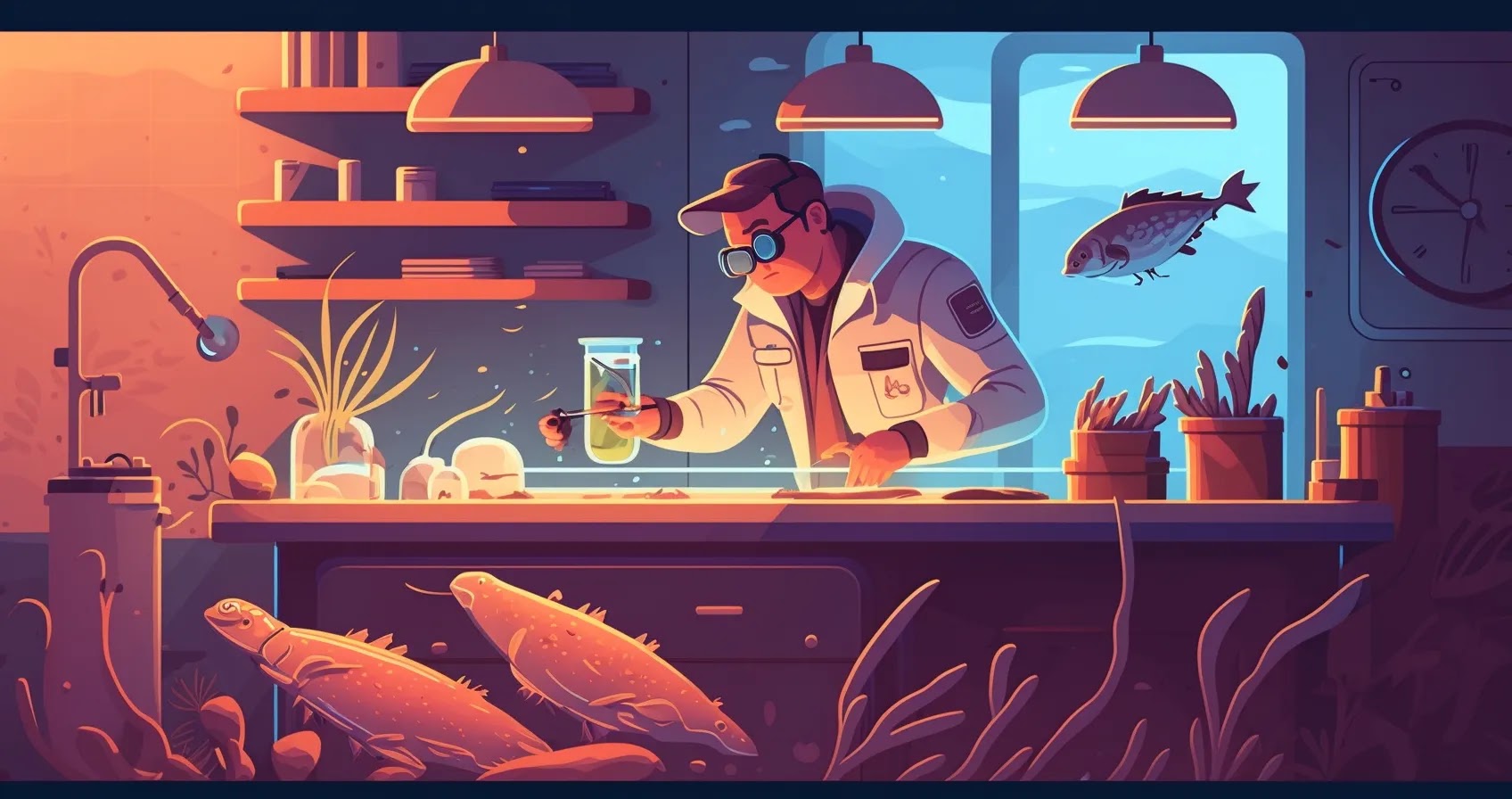Are you passionate about marine life and enjoy working in the water? If yes, then becoming a fishery biologist might be the perfect job for you.
Fishery biologists study fish and other aquatic organisms to understand their behavior, habitat, and biology. They also work to maintain and improve fish populations and their habitats.

Quick Navigation:
Reasons to become a fishery biologist
Besides your love for marine life, there are several reasons why you should consider becoming a fishery biologist:
- You will have the opportunity to work outdoors and on the water.
- You will be contributing to the conservation and management of fish populations and their habitats.
- You will have the chance to work on exciting research projects and make a significant contribution to the field of marine biology.
- You can pursue various career paths, including research, management, and consulting.
How to become a fishery biologist
To become a fishery biologist, you will need a bachelor’s degree in fisheries biology, marine biology, or a related field. A master’s or Ph.D. degree is required for advanced research positions. Additionally, you will need to complete an internship or work experience program to gain practical experience in the field.
You must also have a strong understanding of aquatic ecosystems, fish behavior, and management techniques. You will also need good communication skills to communicate your research findings to various stakeholders.
Skills for fishery biologist
As a fishery biologist, you will need the following skills:
- Strong analytical skills to analyze data and interpret research findings.
- Excellent communication skills to present research findings to colleagues, policymakers, and the public.
- Good problem-solving skills to develop management strategies to maintain and improve fish populations and their habitats.
- Physical fitness for fieldwork, including sampling and data collection.
- Strong attention to detail to ensure accurate data collection and analysis.
Career development
As a fishery biologist, you can pursue various career paths, including:
- Research scientist
- Fisheries manager
- Environmental consultant
- Academician
- Aquatic biologist
Requirements of fishery biologist
The requirements for becoming a fishery biologist include:
- A bachelor’s degree in fisheries biology, marine biology, or a related field.
- A master’s or Ph.D. degree for advanced research positions.
- Practical experience in the field through internships or work experience programs.
- Strong knowledge of aquatic ecosystems and fish management techniques.
- Excellent communication and analytical skills.
Interview preparation for fishery biologist
During your interview for a fishery biologist position, you can expect questions related to your knowledge of aquatic ecosystems, fish management techniques, and research experience. You may also be asked about your communication skills and ability to work in a team. Be prepared to discuss any relevant research projects and your contributions to them.
Work-life balance
As a fishery biologist, you may work long hours in the field during the sampling season. However, you may have more flexible hours during the offseason. Work-life balance may also depend on your employer and the nature of your work. Some employers may offer flexible work arrangements, including remote work, to help you balance your personal and professional life.
A day in the life with a fishery biologist
| Time | Activity |
|---|---|
| 7:00 am | Arrive at work and check email for any important updates or messages. |
| 8:00 am | Head to the field for sampling and data collection. |
| 12:00 pm | Take a break for lunch and review data collected in the morning. |
| 1:00 pm | Continue with fieldwork, including sampling and data collection. |
| 5:00 pm | Return to the office and enter data into the computer for analysis. |
| 6:00 pm | Review and analyze data for the day and plan for tomorrow’s fieldwork. |
| 7:00 pm | Head home and spend time with family and friends. |
Fish biologist jobs
- Fishery Biologist Jobs, Employment – You can check here for latest jobs for Fish Biologist.
- 1000+ Fisheries Biologist jobs in United States – This is another big collection.
Wrapping up
Becoming a fishery biologist can be a rewarding career for those interested in marine life and conservation. With the right education, skills, and experience, you can pursue various career paths in research, management, and consulting. Just remember, it requires hard work, dedication, and passion for the job.






